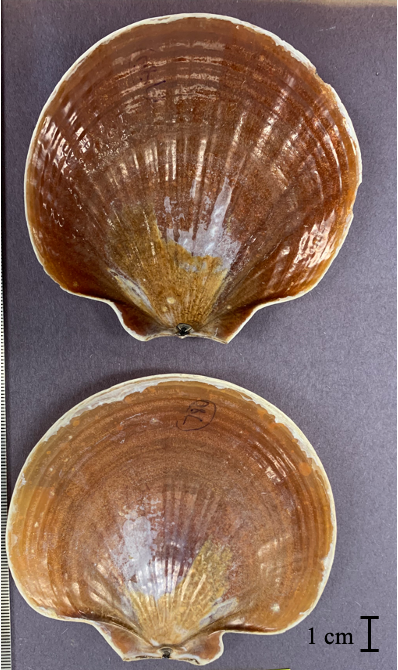Associate Professor of Geology David Gillikin was awarded a National Science Foundation (NSF) Antarctic Earth Sciences grant for his collaborative project “The Antarctic Sea Scallop as Key to Paleoenvironments and Sea Ice Conditions: Understanding the Modern to Predict the Past” (Award 1745080).
Benthic ecosystems under sea ice depicting the Antarctic Scallop, Adamussium colbecki, Explorers Cove, Antarctica. Shell heights are about 8-10 cm. Photo by Shawn Harper.
This project aims to discover whether the Antarctic scallop, Adamussium colbecki, provides a guide to sea-ice conditions in nearshore Antarctica today and in the past. Scallops may grow slower and live longer in habitats where sea ice persists for many years, limited by food, compared to habitats where sea ice melts out annually. The chemicals retained in the shell during growth may provide crucial habitat information related to not only changing sea-ice conditions but also the type of food, whether it is recycled from the seafloor or produced by algae blooming when sea ice has melted. Unlocking the ecological imprint captured within the shell of the Antarctic Scallop will increase the understanding of changing sea-ice conditions in Antarctica. Further, because the Antarctic scallop had relatives living at the time when the Antarctic ice sheet first appeared, the scallop shell record may contain information on the stability of the ice sheet and the history of Antarctic shallow seas. This project will also be integral for training a new generation of geoscientists in fossil and chemical forensics related to shallow sea habitats in Antarctica.
The collaborative team of researchers also includes Dr. Sally E. Walker (University of Georgia) and Dr. Alberto Perez-Huerta and Dr. C. Fredrick T. Andrus (University of Alabama – Tuscaloosa).

